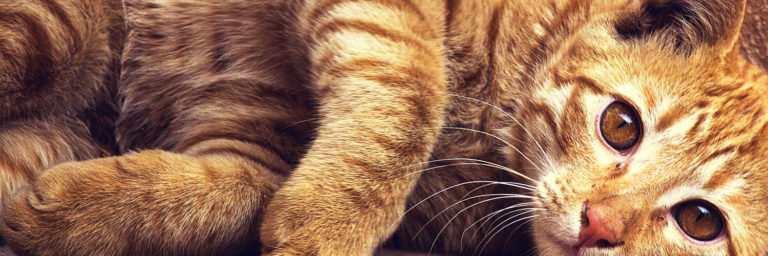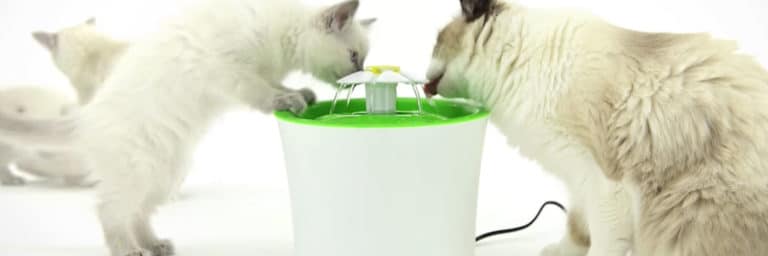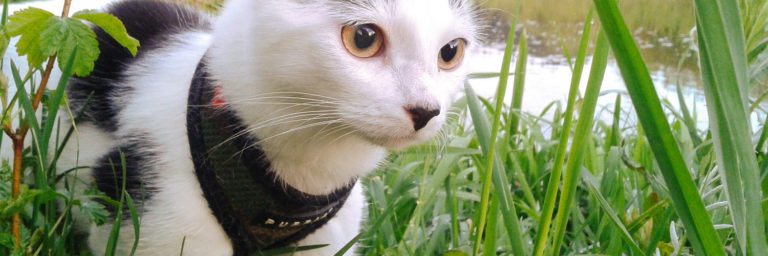Dangers of Easter Lilies in Cats: Our 2023 Guide
Contents of Article
Dangers of Easter lilies in cats make it important to understand the threats from both benign and dangerous lilies and prevent them from being a for concern for your feline.
Well, there are numerous dangers of Easter lilies in cats, ranging from toxicity to kidney failure. Now you must be wondering as to how the beautiful Easter lily can be dangerous to your furry feline. Let’s make it simple. This flowering plant is a real threat to your kitty. Only one bite of a petal, pollen, stem, or leaves can cause toxicity for your beloved kitty, wreaking havoc on its digestive system.
This can get really serious if left untreated. The results can be devastating for you and your feline – which could even mean kidney failure and death.
A Brief Overview of Dangers of Easter Lilies in Cats
The effect of Easter lilies in cats are well documented. Benign lilies contain oxalate crystals that may result in minor tissue irritation on the tongue, mouth, pharynx, or esophagus. One bite of this breed of lilies could be followed by vomiting, foaming, drooling, or pawing at the mouth.
Calla and Peace lilies are a few examples of benign lilies, which don’t cause kidney failure. However, they can severely irritate the mouth and esophagus.
On the other hand, even more dangerous forms of lilies include Lilium or Hemerocallis, which are highly toxic to felines! Dangers from these Easter lilies in cats may cause fatal consequences.
Ingestion of 2-3 petals or leaves can compromise cat health. Not only this, consumption of pollen or water from the vase can have devastating effects in the form of acute kidney failure.
Lily of the valley is another type of dangerous lily, which, when ingested by cats or dogs, may cause irregular heartbeat or heart arrhythmia, lethargy, loss of appetite and low blood pressure. The condition left untreated may lead to seizures or a state of comma and even death.
Lilies are so harmful to cats that even licking a few pollens off their fur can put them in a serious condition, causing kidney failure or even death. Some of the dangerous types of lilies include:
- Day lilies
- Tiger lilies
- Easter lilies
- Japanese show lilies
- Asiatic hybrid lilies
- Rubrum lilies
- Easter lilies
- Stargazer lilies
- Wood lilies
- Red lilies
- Western lilies
Additional Resources:
Signs of Harmful Effects of Easter Lilies in Cats
- Vomiting – If your cat has consumed any part of a lily, it will immediately start vomiting.
- Frequent Urination – Eating only a couple of leaves can prove fatal for a kitty if left unnoticed. Vomiting may gradually lessen after a couple of hours. However, you may notice your feline urinating frequently after a period of 12 to 24 hours after coming in contact with the lily.
- Kidney Failure & Death – In extreme cases, there may be a kidney failure. In that case, the frequency of urination reduces and may stop altogether. Left untreated, the kitty will die within four to seven days as the effects of Easter lilies in cats are witnessed in most cases.
Treatment & Medical Care
Early treatment is critical to the life of your cat. The harmful effects of Easter lilies in cats must be diagnosed and treated without loss of time. If you notice any of the above symptoms, check with the veterinarian immediately. Or if you suspect that your kitty has come in touch with a lily, do not forget to seek your vet’s advice. The sooner the cat is under medical supervision, the better it is for her health and safety.
Decontamination is crucial if there are signs of ingestion or lily poisoning. If treatment is received within six hours, there are good chances of the kitty’s survival.
If your cat has ingested a benign lily, it would help to give her first aid. Offer her something “tasty” immediately to help flush out the crystals from her mouth. This will help resolve the clinical signs to some extent.
The veterinarian may immediately administer intravenous fluid to maintain kidney function and induce vomiting. This will help prevent dehydration in a vomiting kitty.
The vet may also ask for kidney function monitoring tests. Your kitty may be under supportive care to improve the prognosis.
A Word of Caution on the Dangers of Easter Lilies in Cats
As a pet parent, you love your kitty and want to see your cat healthy and alive. It’s best not to grow Easter lilies in your garden for the sake of your cat. But if you do have lilies, it is your duty to ensure that they are always out of reach of your kitty. Spread out the word within your family of how lily toxicity can prove hazardous to your feline. This will help everyone stay awake and cautious, ensuring the kitty never reaches out to the toxic flowers.
Remember, prevention is better than cure! As a pet parent, you would want to stay away from lilies so that there is no compromise with your cat health!







